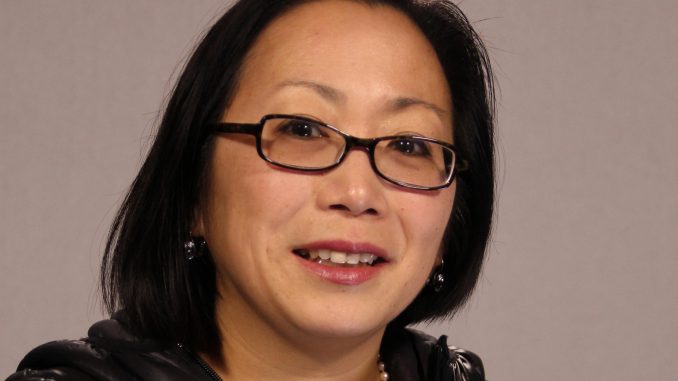
Viola Brown, Contributing Writer |
Associate Professor of Anthropology, Dr. Sallie Han, will be giving a talk as part of the Alden Scholar Series titled “Rethinking Clutter: An Anthropological Take on the Stuff that’s Hard to Let Go.” The talk will focus on the anthropological meaning of clutter and how it affects people’s lives, especially during pregnancy. Dr. Han has been at SUNY Oneonta for 10 years and teaches classes in cultural-, linguistics-, and medical-anthropology.
Viola Brown: What made you want to study the materialism of clutter, and how does it relate to the study of pregnancy in your previous work?
Dr. Sallie Han: One of the striking things in the U.S. is that people start acquiring a lot of stuff in preparation for having a baby. I was doing my work in Michigan [Dr. Han got her PhD at the University of Michigan] and people would do things like get a brand new car, because they felt that their old car wasn’t up for being a family car. In some cases, they would move from an apartment to a house with a backyard, if they could afford that. So it was pretty evident to me that the pregnancy experience was tied to getting a lot of stuff.
VB: How do you see this research going differently than your other research in the past?
SH: The previous research on pregnancy, I had more time to do it. I was a graduate student and I could spend more concentrated time on it. This clutter project that I’m now undertaking is something that could sort of fit around the fact that my life is pretty cluttered.
VB: How would you describe materialism and clutter?
SH: As an anthropologist, I think of clutter as liminal stuff. When we are talking about liminality, we are talking about a status of neither being here nor there, basically things in limbo. Clutter is the stuff that you don’t actively want to keep, but you are not doing much to get rid of it; so it’s neither actively wanted nor rejected … I think there is a lot of clutter in our lives. We are not really sure why we keep some stuff or why we cling to it, or it clings to us for some reason.
VB: What can people look forward to in your talk?
SH: One of the things I want to distinguish is that clutter is not the same as just being messy … If you are looking at something and … you are not really sure where to put it away [and] it doesn’t really have a place, then you are probably talking about clutter. I’m going to talk about how much clutter accumulates around the “in between” times of your life. The beginning and end of life holds a lot of clutter; a lot of stuff is associated with it and it’s sort of interesting that the people in the middle generation who are doing the parenting and taking care of older relatives have to deal with all that clutter.
VB: How does clutter relate to college age students?
SH: College students occupy very much this “in between” space. You are in liminality when you are in college. You are removed from your home communities [and] you are not fully integrated into the society as adult members. As a professor, I don’t ever cross the threshold into residence halls or anything like that, so if there are any students [who] want to become involved in documenting their clutter, contact me. I would love it.
VB: What do you hope students take away from your talk?
SH: I hope they find anthropology and its insights interesting but potentially relevant. I feel like when I see my students, they are so busy and I don’t know if they get a chance to think about how it actually is not just an academic discipline. It matters and might help them think about their own existence.
Dr. Han is currently in the beginning stages of research and hopes to collaborate with Dr. Britt Halvorson at Colby College to create a social media image project documenting clutter, which is tentatively titled “Clutter Tours.” Her talk will take place on April 6 at 7 p.m. in the Alden Room of Milne Library.
I am an adjunct faculty member in anthropology at a community college in WA State. As a psychological anthropologist I would very much like to contact Dr. Han in regards to her research. Is there an email address I can use to correspond with her?